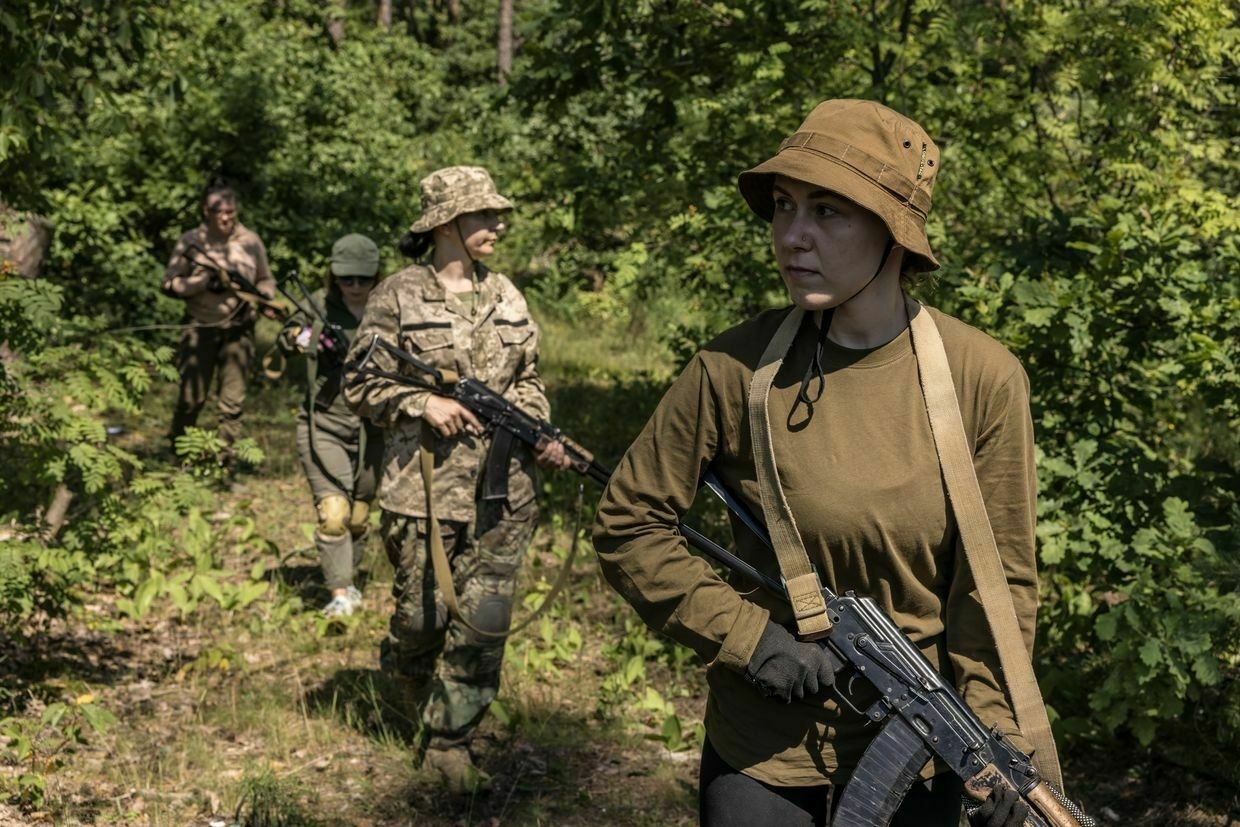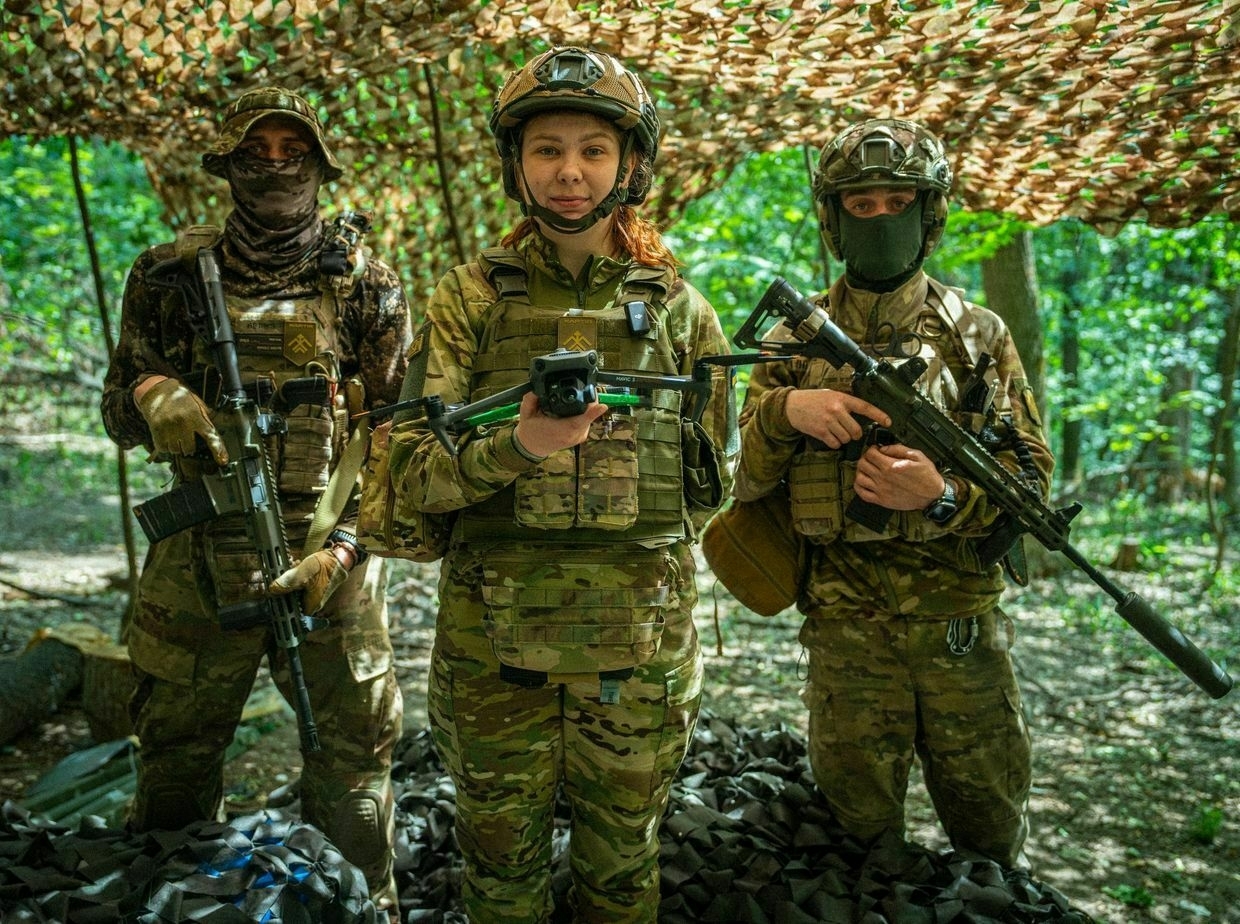
Editor’s note: This article originated as a winning story idea in a vote by members of the Kyiv Independent’s community. Join our community today and join our exclusive members-only Discord channel, where you can discuss and suggest stories, ask our journalists questions, and more.
“Her strength is her mind. Her choice is Khartiia.” That was the message — written in sleek neon green script — shared across all social media accounts of Ukraine’s 13th National Guard Khartiia Brigade this May.
The short tagline headed Ukraine’s first-ever military recruiting campaign targeting women, launched by the brigade to attract them to tech roles in the army.
Around 70,000 women are serving in Ukraine’s nearly million-strong military as of 2025, according to the Defense Ministry. But military service largely remains an unwelcoming environment for female soldiers, who face Soviet-rooted prejudice, limitations on education, career growth, and access to combat positions.
Some progressive units like Khartiia are working to change the situation, in particular by updating internal practices to better integrate women into units. With the new campaign, Khartiia says its hope is to show women they are welcome and can thrive in different positions.
As Ukraine continues to face critical shortages in manpower to fight Russia, the military needs all the help it can get in attracting new recruits.
Motivated and skilled recruits
After nearly 3.5 years of full-scale war, Ukraine’s military increasingly relies on mobilized, rather than volunteer, recruits, leading to units often receiving less motivated soldiers.
Since Ukraine doesn’t conscript women, female volunteers represent a highly motivated yet severely under-utilized category in the army, according to soldiers and activists.
“Motivated women are better at any job than unmotivated men,” said Alina Andreieva, a drone operator in a Khartiia’s reconnaissance unit and the key driver of the campaign.
Andreieva told the Kyiv Independent that she was “obsessed” with the idea of recruiting women since she joined the army about a year and a half ago while working as a photographer.
When in 2025, Khartiia collaborated with two non-profits, Dignitas Fund and the Dutch organization “Protect Ukraine,” to create the campaign, Andreieva and other female soldiers from Khartiia were closely involved in its development.
Another female soldier in Khartia, a 21 year old nurse by training who requested to be identified only by her callsign “Jess,” quickly became a pioneering operator of ground robotic systems within months of joining the brigade.
“I quickly learned basic things like soldering and assembling communication kits for our drones and figured out how the drones worked (and was then able to) propose new ideas — different flight controllers and what we could connect to them to make it informative,” she told the Kyiv Independent in a video interview.
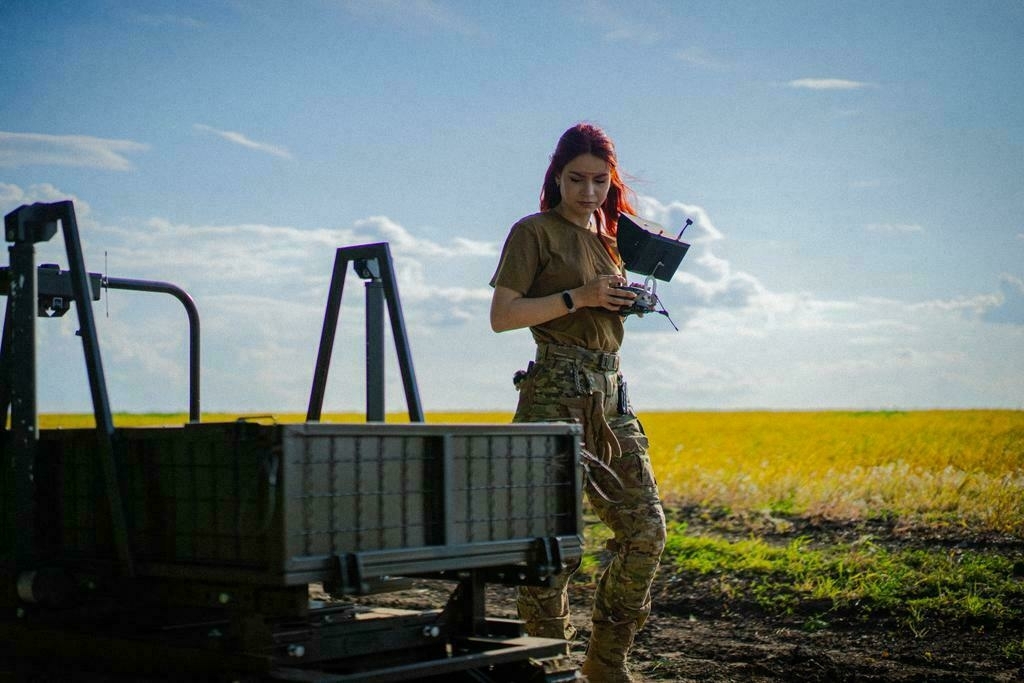
The tech jobs that Khartiia invites women to fill include drone and ground robotic systems operators, electronic warfare and intelligence specialists, and ISTAR (Intelligence, Surveillance, Target Acquisition, and Reconnaissance) dispatchers, involved in a NATO approach towards planning combat operations.
“We really need women in STEM,” said Sofiia Pryduvalova, 30, who does public relations for Khartiia and who co-developed the campaign. “There are many of them (in Ukraine), and they could make the brigade so much stronger.”
Progressive culture
Khartiia, well-known for its incorporation of technology and NATO standards into its workflow, became a flagship of the military corp reform together with the 12th Special Forces Azov Brigade in 2025.
Since its formation in 2022, Khartia has stood out in Ukraine’s post-Soviet military, with its progressive management style cultivating a more welcoming atmosphere for women.
Pryduvalova shared her and her friends' disheartening recruitment experiences, saying that some of them abandoned their plans to join certain units as a result.
“There are brigades that consciously discourage women from joining them, explicitly saying so,” Pryduvalova said.
“The time is ripe for women who want to take matters into their own hands.”
All the women from Khartiia interviewed for this story said they feel safe in the brigade, citing its top-down efforts to modernize and treat every soldier fairly, regardless of gender. Women of the brigade say they also frequently collaborate to advocate for further changes.
"I saw that an unbiased attitude towards women was fostered in recruits even during training," "Jess" said about one of her training courses with the brigade.
"Khartiia was the only brigade at the time (when I was enlisting in 2023) that considered women for a combat role," Andreieva said. As of 2025, around 5,500 women are serving in the Ukrainian army in front-line combat roles, compared to under 5,000 in 2023, according to official data.
"The commanders always treated women equally. The priority was not gender, but how you handled the job," Andreieva added.
Campaign results
The results of the campaign, launched in May, aren't expected until this fall, according to Khartiia’s press officer, Volodymyr Dehtiarov.
Accounting for the initial interviews, medical commission, and at least two basic training courses provided by the National Guard and additionally by Khartiia, it can take at least three months for a non-specialized recruit to join their unit’s daily tasks.
"The results so far are not in quantity, but quality," Dehtiarov told the Kyiv Independent. Before, women who applied rarely listed specific positions they were interested in, while now, more apply for “communications” or “UAV," thanks to the campaign videos where women of Khartiia talk about their respective jobs, he said.
Dehtiarov explained that Dignitas Fund, the non-profit sponsoring the campaign, also found donors to cover the training for dozens of female recruits.
"But we need to fill hundreds of positions (in the Khartiia Brigade), and thousands in the corps (led by the Khartiia brigade commander)," he added, referencing both male and female recruits.

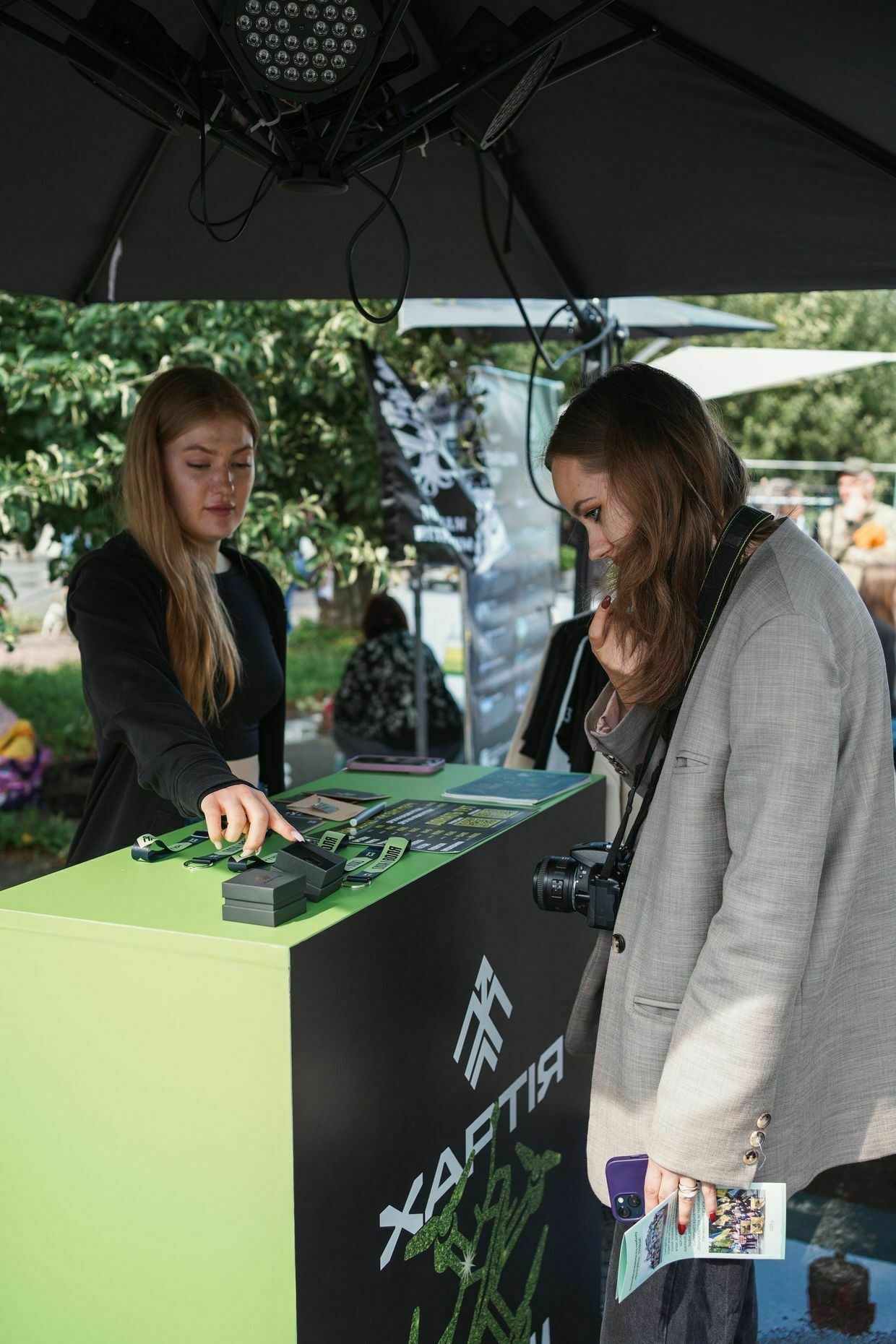
The future of women in Ukraine's army
As female soldiers become more visible in the media, some people are concerned that it’s a step towards compulsory mobilization for women, said Kateryna Pryimak, a leader of the Ukrainian NGO Veteranka Movement which advocates for women in the army.
"It's untrue — our country is hardly ready to mobilize women forcibly," Pryimak added.
And Khartiia’s officers expect the percentage of women in the army to grow even without female conscription.
"There will be a lot of girls in the UAV (unmanned aerial vehicles) segment because (rather than physical strength,) it favors intellect, intuition, and tech skills," said Ihor Raikov, a UAV platoon commander in Khartiia’s anti-tank guided missile company, adding that he expects the number of female volunteers to increase.
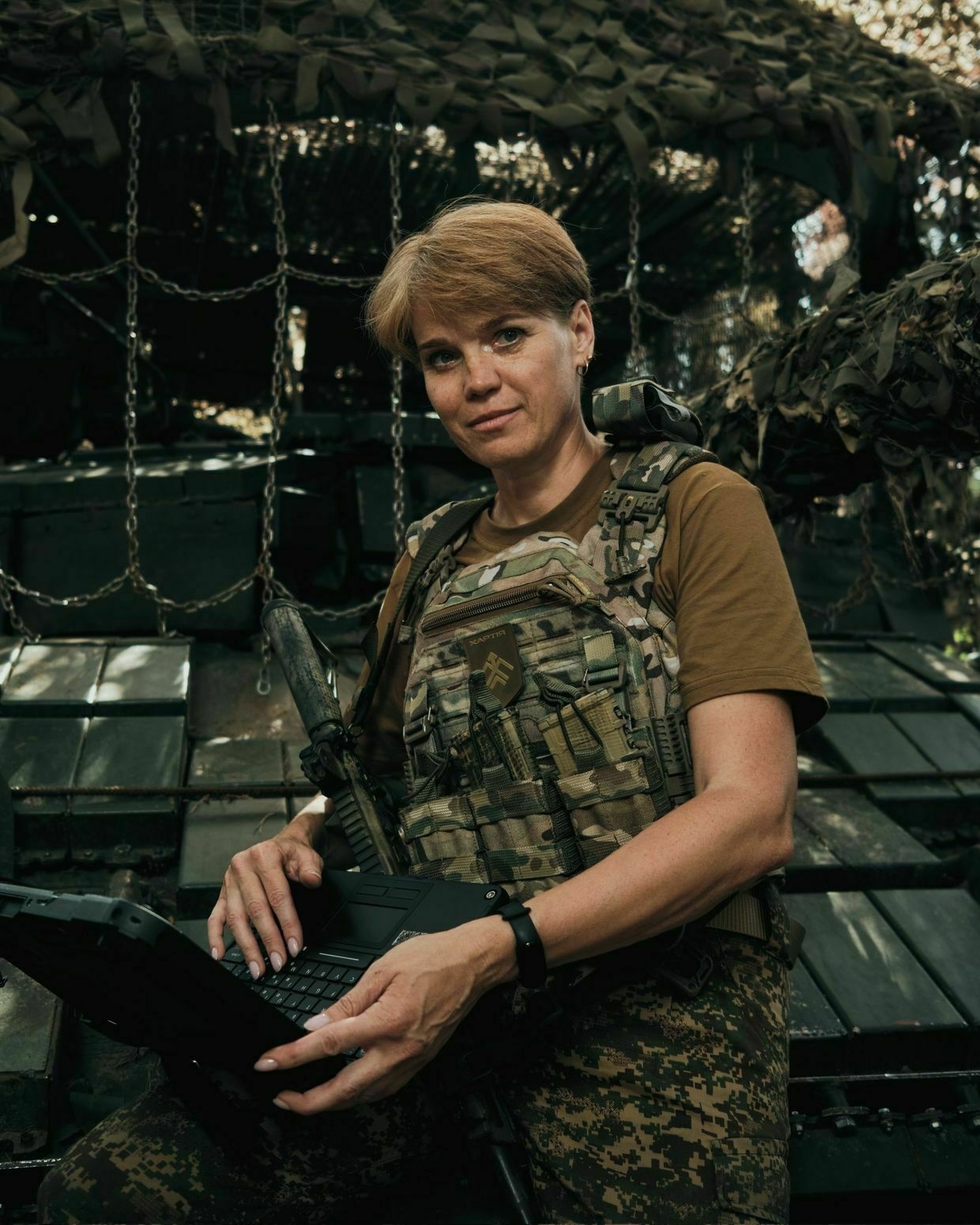
Future female instructors, highly experienced with modern warfare, might also revolutionize military universities, where women face barriers in military education that directly affect career advancement, according to Pryimak.
"The time is ripe for women who want to take matters into their own hands," Andreieva told the Kyiv Independent in a written comment she sent from her front-line position in Kharkiv Oblast.
"Their husbands are either at war or dead; their homes have been destroyed, their loved ones killed or captured; they have seen too much to sit back idly," Andreieva said.
Note from the author:
Hello, this is Natalia Yermak. I wrote this story for you, which was selected by our members through voting on Discord. All the Kyiv Independent members are welcome to join our Discord community and help choose between several options for the story from Ukraine that you are most interested in.
If you’d like to vote on what we should cover in the future and support our work, please consider becoming our member.
 The Kyiv IndependentTim Zadorozhnyy
The Kyiv IndependentTim Zadorozhnyy